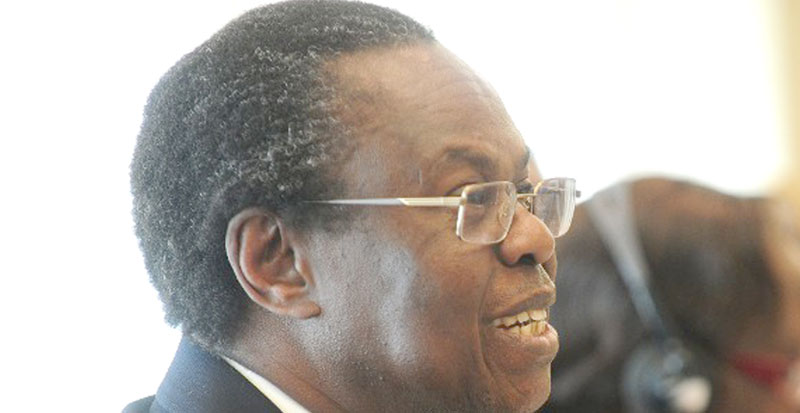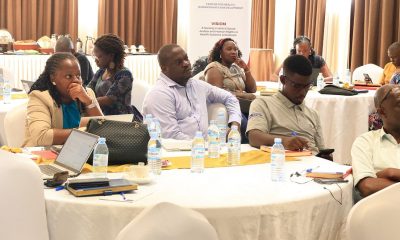Health
2 out of 3 doctors run away from Uganda after qualifying
Health experts from across Africa have expressed dismay at the failure by the Uganda government to introduce measures to stem the uncontrolled wave of brain drain that is adversely affecting the health of Ugandans.
The experts voiced their disappointment during the 3rd Congress of the African Health System Governance network (ASHGOVNET) held at the Imperial Royale Hotel recently under the banner; “Fostering capacity for health governance and leadership with a focus upon health work development.”
Although Uganda leads other East African Countries in graduating the highest number of University medical professionals (about 320 medical students) every year, it is estimated that about two thirds of them leave the country for greener pastures in the region and other countries such as South Africa, Botswana as well as other Western Countries.
The unending departure of medics trained from Uganda’s tax payers money appears to defy all of Uganda government’s commitments to its people as well as to other international protocols.
For example three years ago, Uganda endorsed the 2012-2015 road map in Angola to Scale up human resources for health for improved health service delivery.
Ugandan officials appear to have ignored the fact that President Yoweri Museveni’s government had failed to live up to its commitment of spending 15% of its budget on health. Uganda endorsed the 15% pledge back in 2000 in the Nigerian capital of Abuja hence the name of the declaration. Uganda spent about 8% of its budget on health, about half of its Abuja commitment.
Created in 2009, ASHGOVNET was conceived as a platform of eminent African Health System Leaders and expert to advise governments on their commitments.
Prof. Francis Omaswa, the Executive Director of the African Center for Global Health and Social Transformation (ACHEST) in conjunction with the President of the New York Academy of Medicine Dr. Jo Bourford convened the meeting.
Health experts fret that if the current hemorrhage of the country’s work force continues unchecked, it will undermine Uganda’s efforts to fulfil its commitment such as WHO’s 2030 Workforce Global strategy on human resources for health to which Uganda subscribes.
Organisers of the conference insist that Uganda’s Ministry of Health continues to show a total disregard about the challenges arising from brain drain.
Dr. Patrick Kadama the Executive Director of the African platform on Human Resources for Health (APHRH) told this reporter that: “It is disappointing that officials at Uganda’s Ministry of Health (MOH) evaded all our efforts to discuss the extent of the problem of brain drain in this country and the possible measures to bring it under control.”
(APHRH) is an NGO committed to bring an end to brain drain in health sector on the African continent.
Prof. Nelson Sewankambo, the President of the Uganda National Academy of Sciences (UNAS) added to the Ministry’s criticism of its stance to address the problem.
He said: “No one seems to care when health workers exit this country and when you insist on asking them about the problems, they tell you there is capacity to replace those who migrate when they themselves know that what they are saying is not true.”
Dr. Kadama has compiled a report that shows that as many as 29,654 health professionals, equivalent to one third of Uganda’s total health work force have migrated for greener pastures between 2010 and 2015. South Africa is the leading recipient of Ugandan trained medics.
According to Adam Ahamat, the World Health Organisation (WHO) regional adviser on Human resource for Health planning, the problem is compounded by the Uganda government’s failure to put in place what he termed as “the Human resource for Health observatory” which he says ought to act as a reporting mechanism on all matters of HRH.
“That way they cant even tell how many have left over a time to what destinations among other related HRH aspects,” Ahamat said.
According to Ahatmat, establishing a HRH observatory is an integral part of the commitment Uganda made when it became a signatory to the WHO Workforce 2030 Global strategy on human resources for health in 2012.
“They (the Uganda government) had started working on the project but they suddenly abandoned it and we have since wondered why?” Ahatmat says.
Dr. Senyonjo of the Supporting Policy engagement for evidence based decision (SPEED) a Makerere University based NGO advocating for Universal Health coverage in Uganda attributed the problem to failure by the government to bond medical students, often trained on taxpayers budget.
“If my parents have paid my school fees and studied to the end of my training and then decide to find better employment abroad, what authority does government have over me?” Dr. Senyonjo asked.
Comments



















